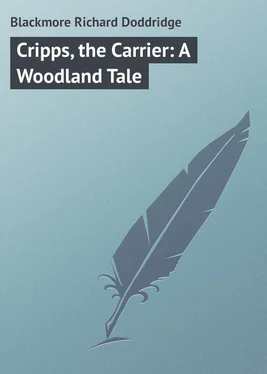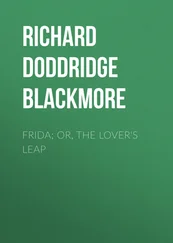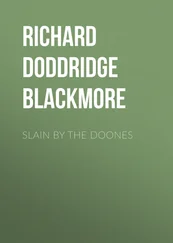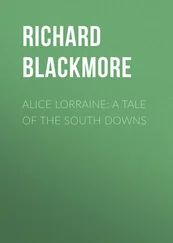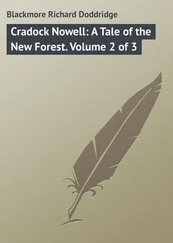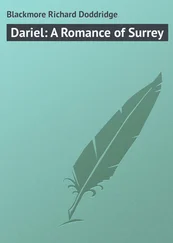Richard Blackmore - Cripps, the Carrier - A Woodland Tale
Здесь есть возможность читать онлайн «Richard Blackmore - Cripps, the Carrier - A Woodland Tale» — ознакомительный отрывок электронной книги совершенно бесплатно, а после прочтения отрывка купить полную версию. В некоторых случаях можно слушать аудио, скачать через торрент в формате fb2 и присутствует краткое содержание. ISBN: , Жанр: foreign_prose, на английском языке. Описание произведения, (предисловие) а так же отзывы посетителей доступны на портале библиотеки ЛибКат.
- Название:Cripps, the Carrier: A Woodland Tale
- Автор:
- Жанр:
- Год:неизвестен
- ISBN:http://www.gutenberg.org/ebooks/43281
- Рейтинг книги:4 / 5. Голосов: 1
-
Избранное:Добавить в избранное
- Отзывы:
-
Ваша оценка:
- 80
- 1
- 2
- 3
- 4
- 5
Cripps, the Carrier: A Woodland Tale: краткое содержание, описание и аннотация
Предлагаем к чтению аннотацию, описание, краткое содержание или предисловие (зависит от того, что написал сам автор книги «Cripps, the Carrier: A Woodland Tale»). Если вы не нашли необходимую информацию о книге — напишите в комментариях, мы постараемся отыскать её.
Cripps, the Carrier: A Woodland Tale — читать онлайн ознакомительный отрывок
Ниже представлен текст книги, разбитый по страницам. Система сохранения места последней прочитанной страницы, позволяет с удобством читать онлайн бесплатно книгу «Cripps, the Carrier: A Woodland Tale», без необходимости каждый раз заново искать на чём Вы остановились. Поставьте закладку, и сможете в любой момент перейти на страницу, на которой закончили чтение.
Интервал:
Закладка:
"What clumsy clod-hopper," cried Mr. Sharp, rushing out, as if he saw nobody – "what beggarly bumpkin has broken my bell? Mr. Overshute! – oh! I beg pardon, I am sure!"
"We must make allowance," said Russel calmly, "for fidgety animals, Mr. Sharp; and for thick gloves in this frosty weather. John, take my horse on the Seven-bridges road, and be back in exactly fifteen minutes. How kind of you to be at home, Mr. Sharp!"
With the words, the young man bestowed on the lawyer a short sharp glance, which entirely failed to penetrate the latter.
"Shut out this cold wind, for Heaven's sake!" he exclaimed, as he shut in his visitor. "You young folk never seem to feel the cold. But you carry it a little too far sometimes. Ah, I must have been about your age when we had such another hard winter as this, four and twenty years ago. Scarcely so bitter, but a deal more snow; snow, snow, six feet everywhere. I was six and twenty then – about your age, I take it, sir?"
"My age to a tittle," said Overshute; "but I am generally taken for thirty-two. How can you have guessed it so?"
"Early thought, sir, juvenile thought, and advanced intelligence make young people look far in front of their age. When you come to my time of life, young sir, your thoughts and your looks will be younger. Now take this chair. Never mind your boots; let them hiss as they will on the fender. I like to hear it – a genial sound – a touch of emery paper in the morning, and there we are, ready for other boots. I have had men here come fifty miles across country, as the crow flies, to see me, when the floods were out; and go away with minds comforted."
"I have heard of your skill in all legal points. But I am not come on that account. Quibbles and shuffles I detest."
"Well, Mr. Overshute, I have met with a good deal of rudeness in my early days; before I was known, as I am now. It was worth my while to disarm it then. It is not so now, in your case. You belong to a very good county family; and although you are committed to inferior hands, if you had come in a friendly spirit, I would have been glad to serve you. As it is, I can only request you to say what your purpose is, and to settle it."
Russel Overshute, with his large and powerful eyes, gazed straight at Sharp; and Mr. Sharp (who had steely eyes – the best of all for getting on with – not very large, but as keen as need be) therewith answered complacently, and as if he saw hope of amusement.
"You puzzle me, Sharp," said Overshute – about the worst thing he could have said; and he knew it before the words had passed.
"I am called, for the most part, 'Mister Sharp,' except by gentlemen of my own age, or friends who entirely trust me. Mr. Russel Overshute, explain how I have puzzled you."
"Never mind that. You would never understand. Have you any idea what has brought me here?"
"Yes, to be plain with you, I have. One of your least, but very oldest tenants, has been caught out in poaching. You hate the game-laws; you are a Radical, ranter, and reformer. You know that your lawyer is good and active, but too well known as a Liberal. It requires a man of settled principles to contest with the game-laws."
"You could not be more wide astray!" cried young Overshute triumphantly, taking in every word the other had said, as a piece of his victory. "No, no, thank goodness, we are not come so low that we cannot get off our tenants, in spite of any evidence; you must indeed think that our family is quite reduced to the dirt, if we can no longer do even that much."
"Not at all, sir. You are much too hot. I only supposed for the moment that your principles might have stopped you."
"Oh dear, no! My mother could not take it at all, in that way. Now, where have you put Grace Oglander?"
Impetuous Russel, with his nostrils quivering, and his eyes fixed on the lawyer's, and his right hand clenching his heavy whip, purposely fired his question thus, like a thunderbolt out of pure heaven. He felt sure of producing a grand effect; and so he did, but not the right one.
"You threaten me, do you?" said Mr. Sharp. "I think that you make a mistake, young man. Violence is objectionable in every way, though natural with fools, who believe they are the stronger. I am sorry to have spoiled your whip; but you will acknowledge that the fault was yours. Now, I am ready for reason – if you are."
With a grave bow, Luke Sharp offered Russel the fragments of his pet hunting-crop, which he had caught from his hand, and snapped like a stick of peppermint, as he spoke. Overshute thought himself a fine, strong fellow, and with very good reason; but the quickness of his antagonist left him gasping.
"I want no apologies," Mr. Sharp continued, going to his desk; while the young man looked sadly at his brazen-knockered butt, for he had been at that admirable college, and cherished his chief reminiscence of it thus. "Apologies are always waste of time. You have threatened me, and you have found your mistake. Such a formidable antagonist makes one's hand shake. Still, I think that I can hit my key-hole."
"You can always make your keys fit, I dare say. But you never could do that to me again."
"Very likely not. I shall never care to try it. Physical force is always low. But, as a gentleman, you must own that you first offered violence."
"Mr. Sharp, I confess that I did. Not in word, or deed; but still my manner fairly imported it. And the first respect I ever felt for you, I feel now, for your quickness and pluck."
"I am pleased with any respect from you; because you have little for anything. Now, repeat your question, moderately."
"Where have you put Grace Oglander?"
"Let me offer you a chair again. Striding about with frozen feet is almost the worst thing a man can do. However, you seem to be a little excited. Have you brought me a letter from my client, to authorize this inquiry?"
"From Mr. Oglander? Oh no! He has no idea of my being here."
"We will get over that. You are a friend of his, and a neighbour. He has asked you, in a general way, to help him in this sad great trouble."
"Not at all. He would rather not have my interference. He does not like its motive."
"And the motive is, that like many other people, you were attached to this young lady?"
"Certainly, I am. I would give my life at any moment for her."
"Well, well; I will not speak quite so strongly as you do. Life grows dearer as it gets more short. But still, I would give my best year remaining to get to the bottom of this problem."
"You would?" cried young Overshute, looking at him, with admiration of his strength and truth. "Give me your hand, sir? I have wronged you! I see that I am but a hasty fool!"
"You should never own that," said the lawyer.
CHAPTER XII.
MR. JOHN SMITH
Meanwhile all Beckley and villages around were seething with a ferment of excitement and contradiction. Esther Cripps had been strictly ordered by the authorities to hold her tongue; and so far as in her lay she did so. But there were others – the Squire's three men, and even the Carrier himself, who had so many things to think, that they were pretty sure to say some of them. One or two of them had wives; and though these women could not be called by their very worst friends "inquisitive," it was not right and lawful that they should be debarred of everything. They did all they could not to know any more than they were really bound to know; and whatever was forced upon them had no chance of going any further.
This made several women look at one another slyly, each knowing more than the other, and nodding while sounding the other's ignorance. Until, with one accord they grew provoked at being treated so; and truth being multiplied to its cube became, of course, infinite error.
Now, Mrs. Fermitage having been obliged to return to Cowley, Mary Hookham's mother had established her power by this time; and being, as her daughter had pronounced, a conspicuous member of the females, she exerted herself about all that was said, and saw the other side of everything. She never went to no public-house – nobody could say that of her; but perhaps she could put two and two together every bit as well as them that did. It had been her fortune to acquire exceptional experience – or, as she put it more plainly, "she had a seed a many things;" and the impressions left thereby upon her idiosyncrasy (or, in her own words, "what she come to think") was and were that nothing could be true that she had not known the like of. This was the secret of her success in life – which, however, as yet bore no proportion to her merits. She frankly scouted as "a pack of stuff" everything to which her history afforded no vivid parallel. In a word, she believed only what she had seen.
Читать дальшеИнтервал:
Закладка:
Похожие книги на «Cripps, the Carrier: A Woodland Tale»
Представляем Вашему вниманию похожие книги на «Cripps, the Carrier: A Woodland Tale» списком для выбора. Мы отобрали схожую по названию и смыслу литературу в надежде предоставить читателям больше вариантов отыскать новые, интересные, ещё непрочитанные произведения.
Обсуждение, отзывы о книге «Cripps, the Carrier: A Woodland Tale» и просто собственные мнения читателей. Оставьте ваши комментарии, напишите, что Вы думаете о произведении, его смысле или главных героях. Укажите что конкретно понравилось, а что нет, и почему Вы так считаете.
